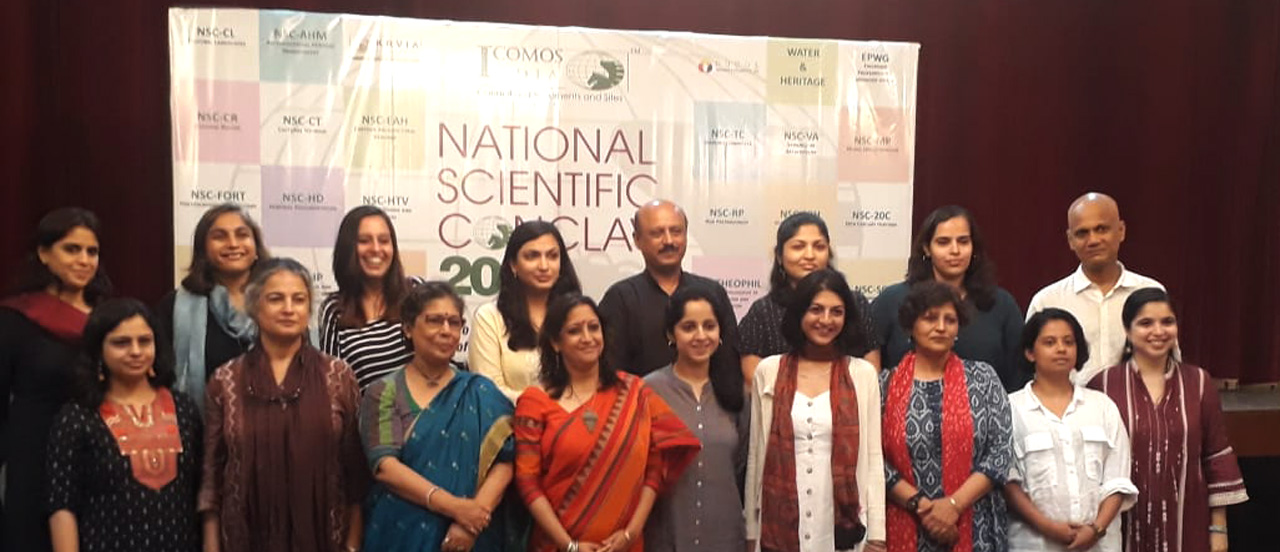
COMOS-India has established 21 National Scientific Committees (NSCs) to represent its concerns of cultural heritage conservation, to serve diverse professional interests of its nationwide members, to share knowledge amongst them and, to foster a multi-disciplinary approach to heritage management. Each National Scientific Committee is connected to the corresponding International Committee of ICOMOS. NSCs are established and, operate according to the Statutes of COMOS and, are legally and financially accountable to the Executive Committee of COMOS-India. The NSCs function through the National Scientific Counsellor, who is responsible for monitoring the activities and programs of the National Scientific Committees and, for providing advice and guidance where necessary. All members of COMOS-India can join any two NSCs of their choice. A minimum of 8 members must subscribe for the establishment and continuance of the NSC
NSC Counselor
Dr. B. Venugopal has worked as Director of National Museum of Natural History, New Delhi (Ministry of EFCC) and Indian Museum, Kolkata (Ministry of Culture). He was also the founder Scientists at two Regional Museums of Natural History, at Mysore and Bhopal. He was Registrar of a Deemed University under the Ministry of Culture: Indian Institute of Heritage (formerly National Museum Institute). He had established two University Centers at the Sree Sankaracharya University of Sanskrit, Kalady: Intangible Heritage Studies as well as Museum Studies. Dr. B. Venugopal has educational qualifications in Zoology (MSc and PhD from University of Calicut) and Museum Studies (MSc from University of Leicester, UK). Dr. Venugopal has completed 3 documents on Intangible Heritage for UNESCO ICHCAP: Pokkali traditional rice cultivation, Kalarippayat indigenous martial art and traditional Aranmula metal mirror work. Currently, he works as an Emeritus Professor at the Trans-Disciplinary University in Bengaluru. He is also associated with the ICOMOS (International Council on Monuments and Sites) as the Indian National Scientific Committee’s Counselor.
NSC Co-Counselor
Dr. Mrinalini Atrey, (Ph.D in History), the National Scientific Co-Counselor, ICOMOS India is presently working as a Lecturer in History at The Law School, University of Jammu, Jammu. She is the Coordinator of ACHS (Association of Critical Heritage Studies) India chapter; Expert member of ICICH; Coordinator National Scientific Committee on Intangible Cultural Heritage, ICOMOS India; Executive member of ACHS ICH Network Committee and Member of ISFNR. She has done her doctorate from the Department of History, University of Jammu, Jammu on “Caste Structure in Jammu Region from Earliest Times till 12th Century A.D”. Her research work is in the area of Intangible cultural heritage of Jammu region with a focus on Local Deity Cult, Folk Rituals, Folk Narrative Songs, and women’s role in the transmission and recreation of intangible cultural heritage. Currently, she is working on the narratives, legends, and anecdotes connected with the built heritage of the Jammu region with a focus on temples, baolis (step-wells), and sarais (inns) on the traditional/pilgrimage routes. Her attempt has largely been to emphasize the importance of ICH as an important source for building historical narratives in the region. Documenting tangible and intangible heritage on the banks of River Tawi is also an area of her focus. Along with many publications, (national and International) related to the areas of work mentioned, she has to her credit a monograph titled “Deity, Cult, Rituals and Oral Traditions in Jammu”. This work has been an attempt to highlight the importance of the study of the Local deity cult and oral traditions associated with it to understand the socio-cultural processes in the Jammu region. She is also the team leader of the group Virasat started in 2014, now registered as an NGO (since October 2019). Virasat under her guidance has been organising heritage walks, workshops, and seminars on different aspects of local heritage. A major achievement has been the mapping of more than 500 hundred old buildings in old Jammu city.